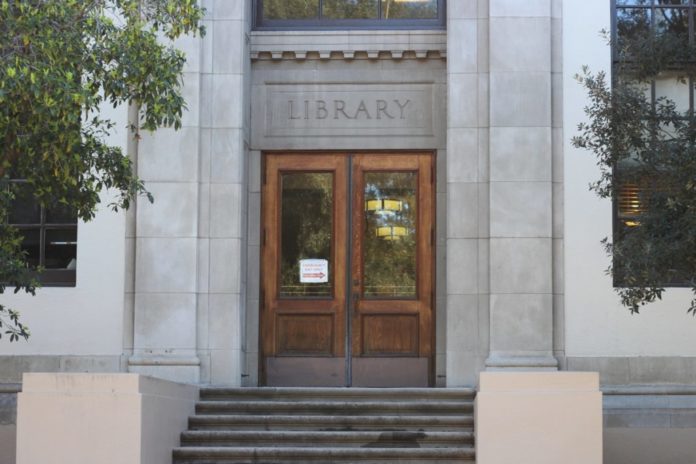
Due to the college’s remote instruction for the fall semester, the Academic Commons is closed to visitors until further notice, according to its website. As a result, employees at the library and Center for Digital Liberal Arts (CDLA) have worked since the Spring 2020 semester and through the summer to expand access to materials and resources for students, faculty and staff. The library and CDLA announced its updated resources and services via email Aug. 21, which provided information about OASys, analog materials, digitization services and Textbook Reserve Program.
The library has expanded its electronic scholarly information resources of over 250 different databases and 75,000 scholarly journals to include 200,000 new e-books, according to the library’s COVID-19 service update. Students and faculty can request and access CDs, DVDs, microform and other analog materials through the curbside pickup program or mail delivery service. Digitization requests can also be made for analog materials. The dramatic expansion of digital resources and services is part of the library’s effort to continue providing access to its resources, even remotely, according to John de la Fontaine, director of scholarly information resources.
“We are doing our best to offer resources that would be unavailable to students and faculty because they can’t come into the library,” de la Fontaine said.
While the library has previously offered digitization services, this semester presents unique challenges to the process. This is because of the time it takes to digitize certain materials, according to de la Fontaine.
“We’re all working remotely and to scan books we have to go into the library. My staff is all remote,” de la Fontaine said. “That’s a challenge to make sure we can get things done in time.”
Brian Chambers, the library’s director of user services, communication and assessment who oversees the curbside pickup program and mail delivery service, said another challenge has been ensuring access for all students. Chambers said that equity was one of the most important considerations, especially for students living further away from campus.
“If you can come to campus and pick up a book, great, we’re going to make it available to you. But what if you don’t live in the area? All of a sudden, our book collection is unavailable to you,” Chambers said. “That’s a lot of our students and that doesn’t seem fair.”
As a result, Chambers said he wanted the mail delivery service to accommodate students who cannot use the curbside pickup program. Students, regardless of location, can check out analog materials from the library and keep them until Jan. 31, 2021. According to Chambers, students have begun to utilize the curbside pickup program and mail delivery service more as the semester has progressed.
“Over the summer, it was a lot more faculty requesting books than students — I think I had two or three students stop by,” Chambers said. “Now what we’re seeing is half of the requests are faculty and half are students.”
Another library initiative coinciding with the remote semester is the pilot online e-Textbook Reserve Program. The Textbook Reserve Program was designed in collaboration with the Associated Students of Occidental College (ASOC), and for years it has loaned analog materials to students. According to de la Fontaine, a select group of 50 students who ASOC identified as being the most in need have been given access to online textbooks through Moodle as a part of the new pilot program, in order to promote overall equitable access to required course materials. De la Fontaine said the Occidental library is the first library in the Statewide California Electronic Library Consortium (SCELC) to provide an e-textbook reserve program.
Jesse Randolph, library resource sharing specialist, said she recommends that any students who are interested in accessing the library’s resources for other types of coursework or research should refer to the online library guides. According to Randolph, there will also be research specialists who will help students learn more about accessing these materials.
“We’re figuring out how to provide the same sort of seminars [this semester] that we otherwise would, and people are working on getting those things set up,” Randolph said.
![]()






























